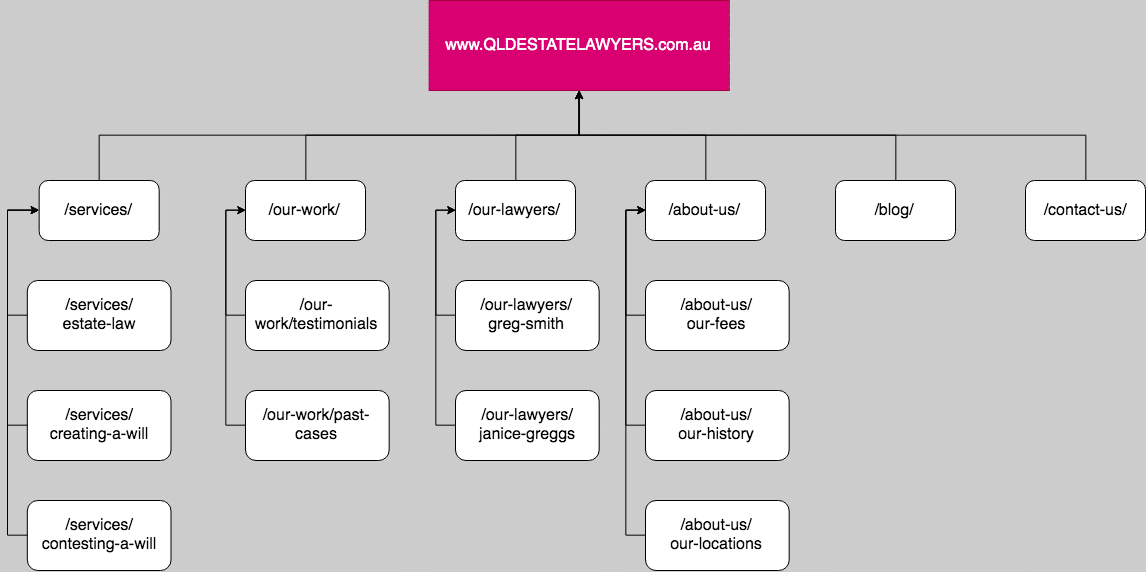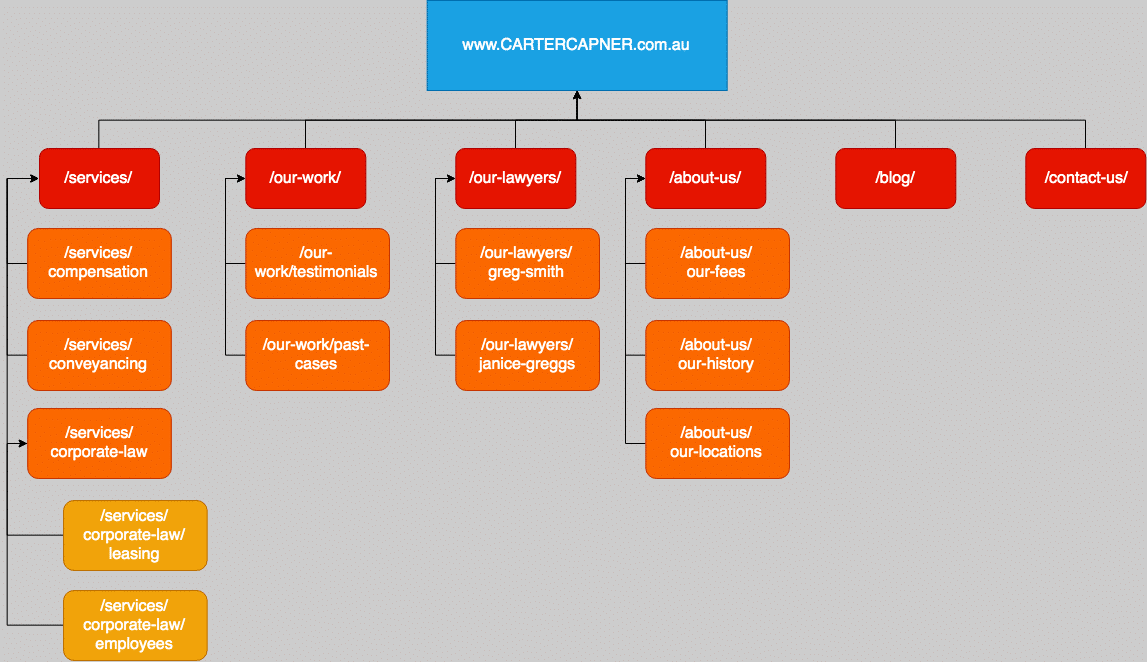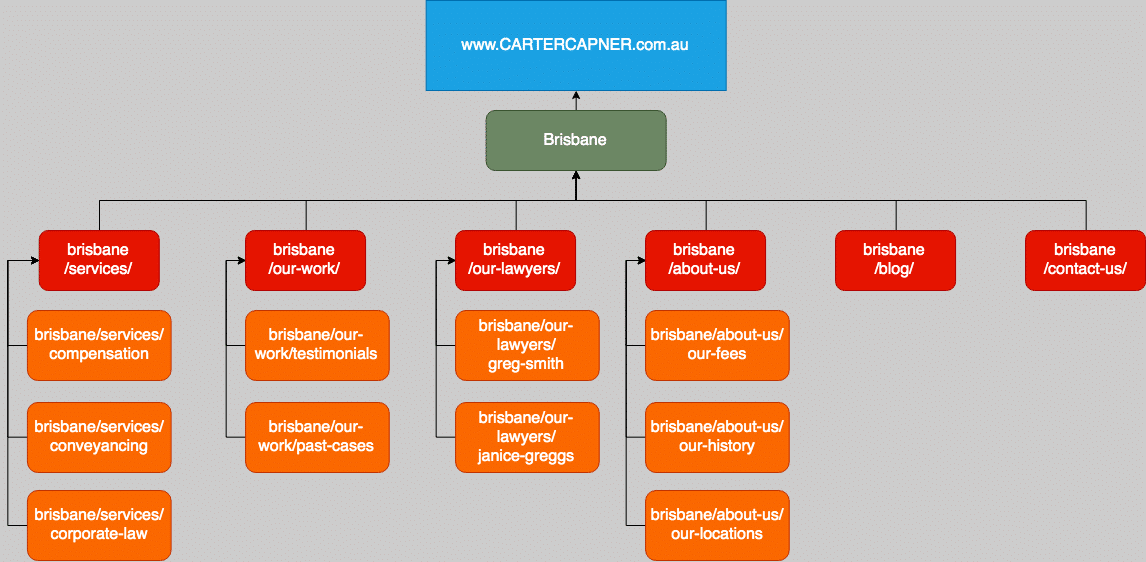Law firm SEO
Is it difficult for your website to generate traffic or quality leads for your law firm? If so, the problem could be that your website not being found by potential clients. The average internet user doesn’t go past the first page of the search results, and people aren’t likely to find you if your website appears on page 2, 3, or even further down. This is where your law firm can benefit from SEO.
Although search engine optimisation (SEO) for Law Firms is a very powerful marketing tool that lets you organically get to the top of the search results, while you can pay to get on page 1 through pay-per-click (PPC) advertising. If you don’t get leads from your website, use these SEO strategies to improve your search engine traffic ranking!
What is SEO?
SEO is a digital marketing strategy that increases the website’s organic search traffic.
Through improving your website and off-site assets, you’re giving clear messages to search engines and potential customers about who you are and what you’re doing. Such transparency results in higher ranking of search engines, more direct web traffic, more leads, and more clients.
1. Determine your the Law firm’s targeting keywords
The first step in improving your law firm SEO is to carefully select your targeted keywords for each legal services and location you practice in. The more relevant or targeted the keywords are, the more likely the keywords will generate the law firm qualified leads.
Firstly, think about what type of searches your law firm wants to rank towards. Consider the main areas of law the firm practice in as a starting point. Consider additional relevant keywords in the ‘ searches related to ‘ section at the bottom of the page of Google search results.

For example, a keyword such as “Brisbane Lawyers” is a broad search term in which shows that a consumer is in their earlier stages of intent when it comes to qualifying as a lead. A more refined focus on keywords such as “Brisbane Divorce lawyers” or “Brisbane Business Lawyers” show higher levels of intent where the consumer is narrowing down their search to a specific location and services.
For keyword ideas consider trying tools which show how common a search is for a particular term, the number of competition and further suggestions. Free keyword tools include:
- Keyword.IO Get hundreds of FREE keyword suggestions!
- Google Trends Google Trends can also be used for comparative keyword analysis and to track event-triggered increases in keyword search volume Google Trends offers keyword-related data including search volume index and search engine usage geographic information.
- Keywords Everywhere The Everywhere keywords plugin add-on is easily installed on either Chrome or Firefox. The best part is to give you monthly search volume, the cost-per-click value of your results and market keyword details on many websites.
- Keyworddit Get keywords based on popular news aggregation website – Reddit. I found ‘subreddits’ specific to the topic of legal, divorce, property, conveyancing, personal injury, business litigation gives me an insight of what people are searching for / looking for more information on.
2. Refining a Law Firms SEO keywords through intent

The reason why we categorise the keywords into a list of 3 is to prioritise each page with the specific content we’re going to match the keywords with. Weighing heavily on 1 group of keyword list compared to the other negative effects the flow of a website’s purpose – Inform, instruct, react.
A. Money keywords
The intent for ‘money’ keywords in Law Firm SEO can be referred to as keywords that show ‘promising’ intentions of a consumer who are looking for a specific service or wanting to act on it.
- Intention: Looking for specific service;
- Keyword examples: Will dispute lawyers in Brisbane, Get a will done online, Hire a criminal lawyer in Gold Coast.
B. Discovery keywords
For discovery keywords, the intent here for the consumers is ‘shopping’ around for the right firm to take on their business. Using these type of keywords on pages such as ‘feature’ pages where it showcases your firm/capabilities/experience is highly recommended!
- Intention: Shortlisting your firm as their ideal law firm to do business with;
- Keyword examples: Best divorce lawyers in Brisbane, Personal Injury lawyers No win No fee, Conveyancing Lawyers Brisbane cost, XYZ lawyers reviews.
C. Information keywords
Information keywords show the intent of a consumer who is looking for information regarding specific services or looking for an answer. Not to be confused with the discovery keywords, informative keywords are often capturing a consumer in their research/initial stage. Informative keywords are great to use for blog articles or case studies.
- Intention: Looking for information regarding a specific case/scenario;
- Keyword examples: Can you sue a medical centre for a botched surgery? Do I have to pay half of a fence if my neighbour puts up a new fence? Can I contest a will if I don’t think it is correct or fair?
3. integrate the Law Firms SEO keywords into the website structure
Now that we’ve done the keyword research for the law firm and categorised them into a list of 3 which is either Money, Discovery, Information. We are now looking to integrate the keywords into the website’s structure. Before we start that there are a couple of things to consider:
- How many services do they offer?
- How many office locations do they have?
Law firms that offer a single service
If the law firm only specialises in just a single legal service such as will and estates, family law, conveyancing etc. Consider structuring the site as follows:
Consider having a ‘micro-site’ with an Exact Match Domain (EMD) for their website URL
An exact match domain (EMD) specifically is a website URL that literally states what the website is about. For example, if the law firm specialises in only just Wills and estates and services Queensland residences, I would suggest the client to consider having a website with the location and service name.
- Example EMD: www.qldestatelawyers.com.au
I wouldn’t recommend EMD if a law firm practices more than one legal services as it cuts the potential law firms SEO ability to rank for other additional service keywords. But if the law firm only practices a specialised service, then EMD is the way to go!
Variations of EMD for law firm SEO
Now the variations and positioning of the location/service/lawyers-law don’t have to be set and stone. But as a rule of thumb try and find an EMD that is variants such as:
- www.[state/suburb][service][lawyers/law].com.au
- www.[service][lawyers/law][state/suburb].com.au
- www.[service][state/suburb].com.au
- www.[state/suburb][service].com.au
Extensions for EMD for law firm SEO
In short, if the law firm practices ONLY in Australia, keep the domain name extension like .com.au. This is to avoid being outranked by other Australian law firms and by focusing on the law firms SEO by letting search engines know that the law firm practices in Australia only.
Please avoid using .net.au as I’ve personally found that .net.au domain extensions are harder to rank with when it comes against .com.au.
An exact match domain website structure based on single services
A starter template (obviously not exact!) that I use for my law firm SEO auditing services gives an insight into what it takes to create a website structure for a single service website. A website backed with cutting edge blog content/knowledgebase will outrank websites spreading their eggs far apart.

SEO for Law firms that offer multiple services
If a law firm offers multiple services across different areas of law such as compensation, as well as corporate law and family law please see the following:
Consider utilising a branded domain name for their website URL
I strongly recommend that if the law firm offers multiple services across different areas of law is to not use an exact match domain (EMD) for their preference to rank their SEO for a law firm website.
This is due to the fact of sending mix signals to search engines such as Google. Here’s an example of a branded domain name:
- Example: www.cartercapner.com.au, www.macdonnells.com.au
Create a new page for each service
Wonder how other law firms with multiple services rank high on search engines? Creating and optimising each service page is one of the main steps in dominating the search engine rank positions (SERP).
- Example: www.si6media.com.au/services/compensation/, www.si6media.com.au/services/conveyancing/, www.si6media.com.au/services/family-law/
Add sub-pages for sub-services for extra opportunity to capture traffic
Creating sub-pages within sub-services gives the law firm website the opportunity to capture long-tail searches made by consumers (specifically for informative keywords).
- Example: www.si6media.com.au/services/compensation/personal-injury, www.si6media.com.au/services/compensation/slip-and-fall

What is a Long-tail keyword?
Long-tail keywords are keyword terms with greater word count. Their length makes them more descriptive than searches with fewer words. “Buy breathable running socks” (4 words) is a long tail keyword example, while “buy shoes” is a short tail keyword.
Law firm SEO for firms that have multiple locations
If a law firm has multiple locations in different major suburbs(Brisbane/Logan/Ipswich) or states, see below for recommendation to structure the website.
Consider adding city locations in the website URL string
The benefits of creating multiple location pages are that most websites just add their locations in a ‘locations’ page and do not put their law firm SEO into practice. This seriously cuts off the potential for ranking in multiple cities. To rank for locality searches, it helps to add the city within the URL string, this essentially creates a new ‘sub-set’ of the main site for each city.
- Example: www.si6media.com.au/brisbane/services/, www.si6media.com.au/browns-plains/services/
Although it should be noted that for each city added, unique content is required for each web page within the city pages since duplicate content is seen as a negative SEO aspect.

Adding locations in a navigation layout
Unlike other websites where they add their locations in a specific ‘locations’ page, adding the locations on either the header or footer is recommended and crucial for both organic and robot perspective.
SEO is competitive in the legal space and there is such a sign that this will change in the near future. You have to do things the right way if you want to rank.
If you have any questions, you can contact me here.


